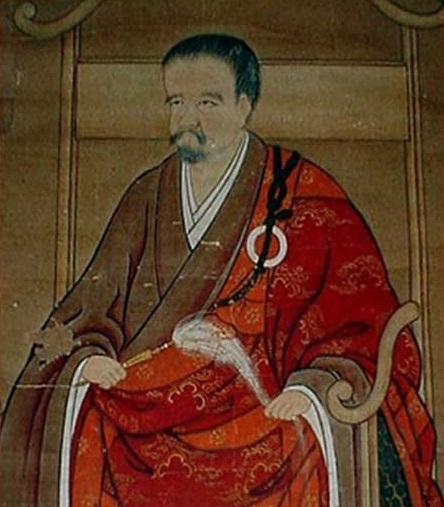The Zen rebels: obscure hermits and existential reformers (part 16). Bankei Yōtaku,
“Die -- then live Day and night within the world Once you've done this, then you can Hold the world right in your hand!”
Bankei Yōtaku, was probably one of the most intriguing of Zen masters, for many reasons. In his younger days, he was a rebel, who rejected the rigidity of Confucian teachings that ran in tandem with Buddhist teachings throughout Japan in the 16th Century. Already, in someways, seeing how it will eventually manifest as a political structure under neo- Confuciusim later in the 18th Century. He was no oracle, just a young man at the time trying to find his way, searching through the religious texts and of course aware of the teaching of Buddha, more so the Laṅkāvatāra Sūtra which is the core of all Ch'an and Zen Buddhist teachings. But, his obsessive longing to connect with his own mind, to feel completed, to know and understand the purpose of the self. The Buddha nature. He ended up wandering as a teenager in and around the Hyōgo prefecture, the place of his birth. Dissatisfied with the Confucianism and Tantric Buddhist teachings, he continued to source the meaning behind the one sentence which was ingrained in his mind from an early age, that ironically came from a Confucius text, it reads “The way of great learning lies in clarifying Bright Virtue.” As a troubled young man, impressionable, yet capable in questioning the religious and political order at the time. It becomes his mantra, repeating of that single line, more so the meaning behind the phrase from the sentence "Bright Virture", which started him on a quest to find a teacher who would give him that direct answer. So, it was his request that he become a monk under Umpō Zenjō, a Rinzai Zen teacher, who later ordained Bankei as a Zen monk. The restlessness of this young man remains persistent, moving around, unsettled. Unfocused. After a three year angya (pilgrimage) he began to settle in the town Nonaka, building a small hut and thus begins his life as a Zen hermit. Sitting in the Zazen (lotus inspired) position, he meditates night and day. Of course, he begins to neglect his body and what was actually occurring was a self centered desire to understand his own mind, through self induced suffering. Masochistic in nature. He contracts tuberculoses. Weak and frail, a local Doctor issued him a prognosis of Death. Bankei was dying from self neglect, yet he remained persistent in his meditation, re-focusing that desire of understanding, as it now transforms into the discipline of non-thoughts. It is then, probably very close to death, he has his kenshō (awakening).
“I felt a strange sensation in my throat. I spat against a wall. A mass of black phlegm large as a soapberry rolled down the side...Suddenly, just at that moment...I realized what it was that had escaped me until now: All things are perfectly resolved in the Unborn [the Eternal, Absolute, Open, Infinite Awareness]...It struck me like a thunderbolt that I had never been born, and that my birthlessness could settle any and every matter...daily my health improved and soon I was able to accomplish the greatest desire of my life: I was able to get my mother to see the truth, the secret of birthlessness, before she died.”
So, from what may have been a delirium of thoughts, challenged and refined by meditation, it is at near death - a clarity was found. An awakening. The first in a series of Satori's, which began to formulate Bankei's intriguing form of Zen Buddhism. That, if one is to look back into his history and his later teachings. One may see Bankei as the first Zen Master to form a 'cult' within the history of Zen in Japan.


Comments
Post a Comment